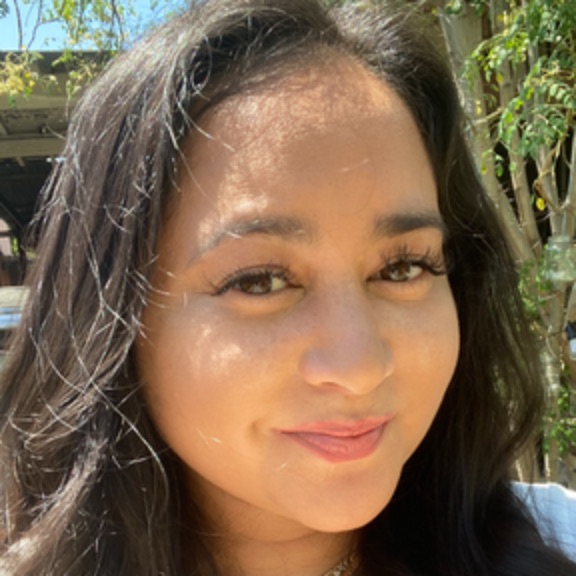Your Guide to Borderline Personality Disorder Therapy in Los Angeles
Ready to find compassionate, effective borderline personality disorder therapy in Los Angeles? Explore the MiResource therapist directory to connect with clinicians who align with your goals, preferences, and schedule. Our platform helps you find a strong match based on your needs and location, making the search simpler and more personalized. Start your search today and take the next step with support that feels right for you.
Learn more about Borderline Personality Disorder
This section provides general information about Borderline Personality Disorder (BPD) and outlines what individuals in Los Angeles can expect from therapy or treatment options. Learn about the symptoms, causes, and effective therapeutic approaches available to manage BPD in the Los Angeles area.
What is Borderline Personality Disorder?
Borderline Personality Disorder is a mental health condition marked by ongoing instability in emotions, self-image, and relationships. Common symptoms include intense mood swings, fear of abandonment, impulsive behaviors, self-harm or suicidal thoughts, and rapidly shifting identity. These challenges can impact daily life by straining relationships, disrupting work or school, and making it hard to manage stress and decisions. With compassionate, evidence-based care in Los Angeles, many people find relief and greater stability. To learn more, visit our Borderline Personality Disorder page.
Why Seek Therapy for Borderline Personality Disorder?
Seeking therapy for borderline personality disorder can feel daunting, but you’re not alone—and effective, compassionate care is available in Los Angeles. Evidence-based treatments include Dialectical Behavior Therapy (DBT) to build emotion regulation, distress tolerance, mindfulness, and safer relationship skills; Mentalization-Based Therapy (MBT) to improve understanding of your own and others’ thoughts and feelings, reducing impulsivity and conflict; and Transference-Focused Psychotherapy (TFP) to integrate split feelings, stabilize identity, and improve attachment patterns. Schema Therapy helps heal deep-rooted schemas linked to abandonment, shame, and mistrust, fostering lasting self-worth and healthier boundaries. Good Psychiatric Management (GPM) offers practical, goal-focused guidance and crisis planning, while STEPPS provides skills-based group training that enhances emotional predictability and complements ongoing therapy. Together, these approaches can reduce self-harm and suicidal behaviors, ease emotional swings, and strengthen relationships so daily life feels more stable and hopeful.
What to Expect from Borderline Personality Disorder Therapy
Borderline personality disorder therapy is a supportive, collaborative process tailored to your goals, pace, and strengths, helping you feel understood and empowered in Los Angeles. In Dialectical Behavior Therapy, you can expect structured skills training and coaching to manage emotions, reduce self-harm, and improve relationships. Mentalization-Based Therapy focuses on understanding your own and others’ thoughts and feelings to navigate conflict and instability more effectively. Transference-Focused Psychotherapy uses your relationship with the therapist to identify and change patterns that fuel intense emotions and impulsivity. Schema Therapy and Good Psychiatric Management provide practical frameworks to shift long-standing beliefs and improve daily functioning, with each step personalized to what matters most to you.
How to Find the Right Borderline Personality Disorder Therapist in Los Angeles
Start by searching for Borderline Personality Disorder to see therapists who treat this condition. Then narrow your list by therapist approach, specific experience with BPD, insurance accepted, appointment availability, and proximity within Los Angeles. Review profiles to assess communication style and specialties, because personal fit is crucial for effective care. MiResource makes comparing options simple with clear, side-by-side details. Explore the directory now to find the right therapist for you.
Why Choose a Local Los Angeles Borderline Personality Disorder Therapist?
Living in Los Angeles comes with its own emotional landscape: the hustle of the entertainment and tech scenes, the gig economy’s instability, and the layered identities across neighborhoods from Koreatown to Boyle Heights to the San Fernando Valley. A local BPD therapist understands how bicultural and multilingual dynamics (Spanish, Korean, Armenian, and more), social media and industry pressures, and community stressors like wildfire seasons or housing insecurity can interact with mood regulation, relationships, and identity. This cultural fluency helps tailor evidence-based care to the realities of Angeleno life, whether you’re navigating public-facing careers, family expectations, or the city’s vibrant but demanding social networks.
In-person therapy here also means practical care that fits LA logistics. A clinician who knows the 405/101 bottlenecks, parking near the Arts District or LACMA, and Metro access along the E and A Lines can schedule thoughtfully and offer offices in neighborhoods like Santa Monica, Downtown, or Pasadena to reduce missed sessions and crisis escalations. Face-to-face sessions are especially valuable for skills-based treatments like DBT, where nuanced body language, in-room coaching, and coordinated safety planning benefit from being in the same space—without the tech hiccups that can derail momentum during peak-hour internet or when you’re taking a call from your car between auditions or shifts.
Los Angeles also offers robust local resources that complement therapy. LA County Department of Mental Health provides county-wide services and urgent help via the ACCESS line and clinics across the county. NAMI Greater Los Angeles County hosts education and support groups for individuals and families in multiple regions. Didi Hirsch Mental Health Services offers crisis support and outpatient programs, including suicide prevention. For hospital-level care and specialized programs, the UCLA Resnick Neuropsychiatric Hospital is a leading option. Families can access BPD-specific support and skills through NEABPD’s Family Connections groups, which frequently run cohorts serving Los Angeles.
Frequently Asked Questions
1) How do I know if I need a therapist for Borderline Personality Disorder?
If intense emotions, unstable relationships, fear of abandonment, or impulsive behaviors are disrupting your day-to-day life, it may be time to seek support. You might notice rapid mood shifts, feeling empty, or urges to self-harm, especially during stress. If school, work, or relationships in Los Angeles feel harder to manage despite your best efforts, a therapist can help you regain stability. Reaching out doesn’t mean you’re “too much”; it means you’re taking care of yourself.
2) What if I don't feel a connection with my therapist? Is it okay to switch?
It’s completely okay to change therapists—fit matters, especially with Borderline Personality Disorder, where trust and safety are central to progress. The therapeutic alliance is one of the strongest predictors of outcomes, so feeling heard and respected is essential. You can start by sharing your concerns; if it still doesn’t feel right, exploring other providers in Los Angeles is a healthy choice. Your needs and comfort come first.
3) Is online therapy as effective as in-person therapy?
For many people with Borderline Personality Disorder, online therapy can be as effective as in-person care, especially for structured treatments like DBT. Virtual sessions can improve consistency by removing commute and scheduling barriers in Los Angeles and may feel more comfortable on tough days. In-person care can be helpful if you need higher-intensity support, prefer face-to-face connection, or have limited privacy or technology. Some people choose a hybrid approach to match their needs over time.
4) What should I ask a potential Borderline Personality Disorder therapist?
Ask about their training and experience with BPD treatments (e.g., DBT, MBT, schema therapy) and how they tailor care to your goals. Ask how they handle crises, whether they offer skills groups or phone coaching, and how progress is measured. Clarify logistics: availability, session length, fees, insurance, sliding scale, and telehealth options in Los Angeles. Confirm they’re licensed in California and that their style and cultural competence feel like a good fit.
5) Does therapy for Borderline Personality Disorder really work?
Yes—research shows therapies like DBT, MBT, and schema therapy reduce self-harm, hospitalizations, and emotional intensity while improving relationships and quality of life. Many people in Los Angeles find meaningful, sustained progress when therapy is consistent and skills are practiced between sessions. It may take time to notice changes, but small steps add up. The right therapeutic fit and support system make a real difference.













